Editor’s Note: Marianne Schnall is the author of “What Will It Take to Make a Woman President? Conversations About Women, Leadership and Power” and the founder of Feminist.com and the What Will It Take movement. The opinions expressed in this commentary are solely those of the author. View more opinion on CNN.
In 2020, Women’s History Month comes amid a time of social upheaval and global fear over the coronavirus pandemic and resulting political turmoil. While for many the 2020 presidential race is now an afterthought, this Women’s History Month does also mark the departure of the last remaining women candidates from the 2020 presidential field – during an election year that also marks the centennial of women’s suffrage.
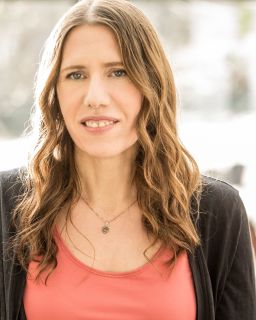
As Women’s History Month comes to a close, many of us are afraid, angry and anxious about what’s next – and there’s arguably never been a more significant time to consider how women’s history informs the present. In that spirit, I asked an esteemed set of women to reflect back on their lives and careers as leaders, drawing on historical moments or achievements by women that have given them hope and the fortitude to keep going. As Jennifer Siebel Newsom told me, “We must continue to lift each other up, build partnerships, and fight for each other—because when women rise, we all rise.”
Here is a glimpse at those inspiring stories and figures—who they are, what they’ve meant to these women in the past and what they mean to them now, looking forward in 2020 and beyond. As trailblazing tennis legend Billie Jean King once said to me, “Whatever you care about, you can make a difference. You really can. Don’t ever underestimate yourself. Do not underestimate the human spirit.”
Clara Barton
By Madeleine Albright
As the global community grapples with a major public health crisis, during this Women’s History Month I have been reflecting with pride on the leading role that women have always played, and continue to play, on the front lines of medicine and caregiving.
In the United States, this story is perhaps best exemplified by Clara Barton, the founder of the American Red Cross and one of the most celebrated figures in the nation’s history. Her lifesaving work on Civil War battlefields and her lasting contributions to the betterment of society are a reminder of how much a determined woman can do.
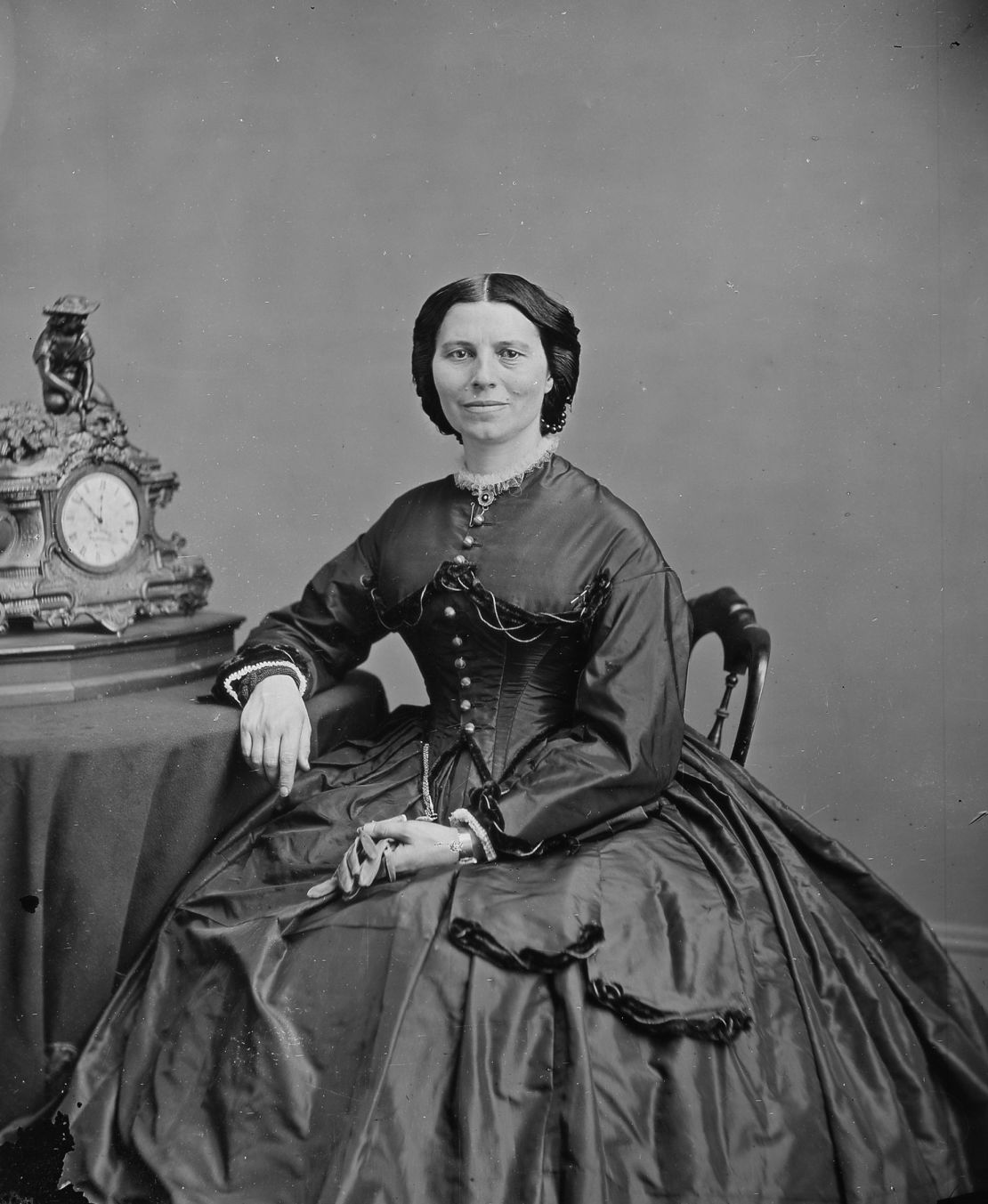
Barton was more than a dreamer, she was a doer whose legacy embodies a principle that is at the core of what America is about: that every one of us counts, no matter who we are, where we come from, or what our race, gender, or creed happen to be. As we confront the challenge of the coronavirus, we must all recommit to this principle, for it is the central pillar upon which healthy and united communities are built.
Madeleine Albright is the first woman to serve as US Secretary of State. She is the author of multiple books, including the shortly forthcoming “Hell and Other Destinations: A 21st-Century Memoir.”
Rachel Carson
By Jane Goodall
In 1962, after two years studying chimpanzees, I went to Cambridge University to read for a PhD in ethology. There I was told there was a difference in kind between humans and other animals, that only we humans had personalities, minds, and emotions. But I had learned that this was not true from my childhood teachers, my wonderful mother and my dog, Rusty! So I refused to comply with this reductionist thinking. Eventually, because the chimpanzees are so similar to us biologically as well as behaviorally, most scientists accepted that we are part of the animal kingdom. But I received much criticism.
During that challenging time, I read Rachel Carson’s “Silent Spring” and was inspired by her courage in battling with pharmaceutical companies, the government and scientists about the danger to the environment of DDT. She wrote for the general public, letting people know the truth, challenging the belief that scientists were above criticism.
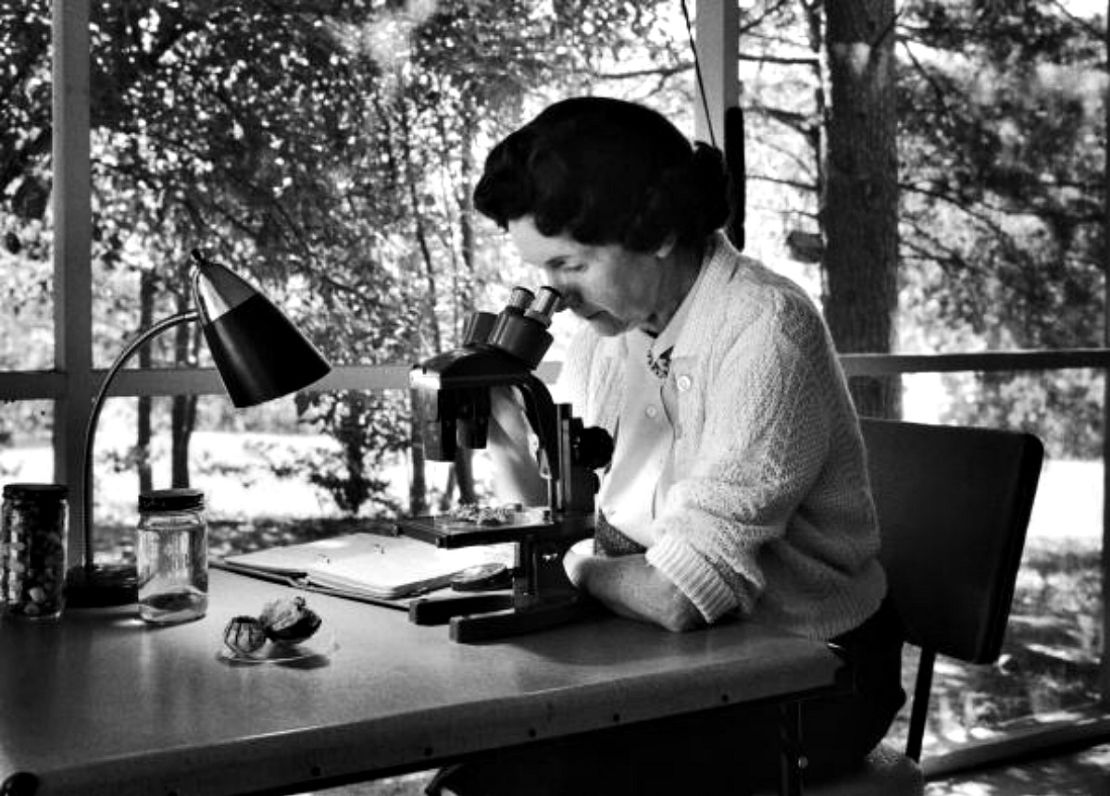
I thought of Rachel again in 1968 when I was confronting scientists in the medical research laboratories where chimpanzees were imprisoned in small, barren cages. And again, as I increasingly spoke out against the use of chemical pesticides and herbicides by industrial agriculture.
Although recent victories against these companies are encouraging, there is a long fight ahead of us still, and Rachel will continue to inspire. Because she never gave up, and she succeeded in banning DDT despite the vested interests of corporations and the government—despite the fact that she was secretly battling the cancer that killed her. In addition, I was always supported and encouraged by my mother.
Jane Goodall is founder of the Jane Goodall Institute and a UN Messenger of Peace.
Claudette Colvin
By Sheryl Sandberg
My first reaction to learning about Claudette Colvin was, “How did I not know about her until now?” In 1955, Claudette was 15 and living in Montgomery, Alabama. On her ride home from school one day, the driver ordered her to give up her seat to a white woman. Claudette refused, and two police officers dragged her off the bus in handcuffs.

Civil rights lawyers considered making Claudette the test case to dismantle segregation in Alabama. But for various reasons—including that Claudette was pregnant and perhaps not sympathetic enough – they decided not to. Claudette ended up paying a fine and moving on with her life. Nine months later, Rosa Parks refused to leave her seat on a bus, and everything changed.
Learning about Claudette was a lesson in how women’s history is a lot more vibrant and thrilling than the history books suggest. But now, when I think about her, I think about something different. I think about how this black pregnant teenager had the courage to stand up on her own against a racist, dehumanizing system, when a lot of other people wouldn’t. Young people have always been more powerful than we think.
Sheryl Sandberg is Facebook’s Chief Operating Officer and the founder of Lean In and Option B
Shirley Chisholm
By Barbara Lee
When I first met Congresswoman Shirley Chisholm, I was a young, single mom on public assistance and food stamps. I was active in the community—serving as president of the Black Student Union, volunteering with the Black Panther Party, while raising two young boys. The time I spent on her campaign deeply impacted my life.
My government professor assigned us fieldwork on a presidential campaign. At the time, three men were vying for the Democratic nomination, but they didn’t represent me. They had no platforms regarding the issues that impacted me as a black single mother—issues like childcare, public education, universal health care and ending poverty. I had never flunked a class in my life, but I resigned myself to flunking this assignment.
Then I met Shirley Chisholm. I invited Congresswoman Chisholm to Mills College to address the Black Student Union as the first African American woman elected to Congress, having no one idea that she was also running for president right up until she said it in her speech. Here was the candidate I had been hoping for. She stood up for children and struggling families, and spoke out against racism, sexism and xenophobia. She advocated for what she knew to be right, undeterred by criticism and without fear of the consequences. She was bold and courageous—truly unbought and unbossed.
As soon as she finished her speech, I offered to do anything I could for her campaign. But when she asked me if I was registered to vote, I admitted that I was not. She was not pleased. She looked at me and said: “Little girl, you can’t change the system if you’re on the outside looking in. Register to vote.”
She showed me what moral leadership means: not just standing up for what is right, but standing by those beliefs in the face of overwhelming opposition. And she taught me that Black women can’t go along to get along—we must change the rules of the game if we are to address institutional racism and sexism. She showed that as we broke barriers, we must bring other women with us.
Barbara Lee, a Democratic representative from California, worked on Shirley Chisholm’s presidential campaign in 1972.
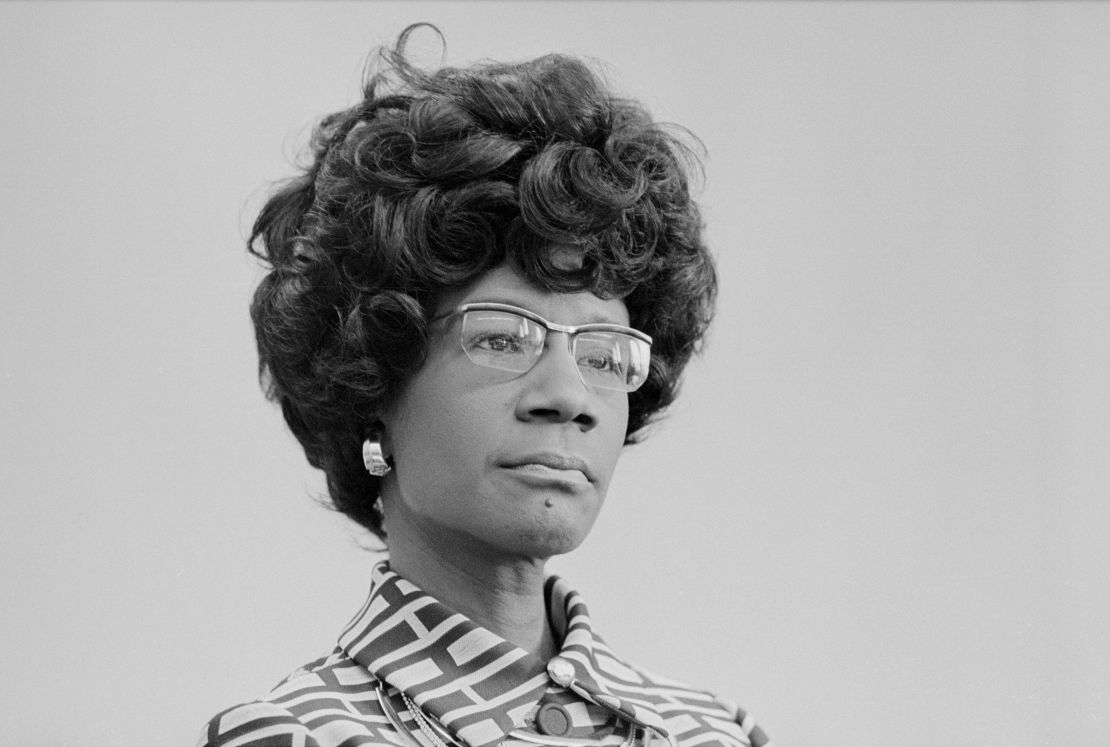
By Kamala Harris
Congresswoman Shirley Chisholm remains an inspiration to little girls and women everywhere, including myself, reminding us to strive for what’s possible, unburdened by what’s been. As my mother—another hero in my eyes—used to say, “You may be the first to do many things, but make sure you’re not the last.”
Shirley Chisholm did just that: she taught us the power of being in our truth and carving out a path to help the next generation. When asked what she wanted her legacy to be, she once said, “I’d like them to say that Shirley Chisholm had guts. That’s how I’d like to be remembered.” During this Women’s History Month, I am thinking of Shirley Chisholm, and hope that little girls and women everywhere remember: yes, she had guts, and we should, too.
Kamala Harris is a US Senator from California and former candidate for the Democratic nomination for President.
Dorothy Bolden
By Ai-jen Poo
When the New York Domestic Workers’ Bill of Rights passed 10 years ago, I knew I was both witnessing a massive historical achievement in that moment and riding the crest of a longer historical arc, lifted up by millions of women who have been fighting for respect and dignity for generations.
Women like Dorothy Bolden, who began fighting for the rights of domestic workers in the 1960s, riding the buses of Atlanta, Georgia, to organize workers on their way to and from work, and made a breakthrough in 1968 when she founded the National Domestic Workers Union of America. Dorothy Bolden, the daughter of a housekeeper and a chauffeur, organized 13,000 domestic workers—something that had been considered impossible—across ten different cities and fought for wage increases, workers’ compensation and Social Security.
Around 30 years later, I witnessed the signing into law of the first state legislation ensuring domestic workers in New York have the right to overtime, a day of rest, three days paid time off and protections from discrimination and harassment—a moment which was riding on the momentum of Dorothy Bolden before us, but which also in turn created momentum for the eight pieces of state legislation that followed. Nearly a decade after the New York legislation passed, a National Domestic Workers Bill of Rights was introduced in 2019 by Sen. Kamala Harris and Rep. Pramila Jayapal—two strong women of color serving in Congress. Our movement is bookmarked with moments of historical achievement, but we’re all riding on a wave that started long before many of us were born, and I believe will continue to rise well into our future.
Ai-jen Poo is executive director of the National Domestic Workers Alliance and co-director for Caring Across Generations and a co-founder of Supermajority, a women’s equality organization made up of women from all backgrounds, races and ages.
Dorothy Parker
By Jennifer Finney Boylan
Over the course of my career I have looked to other women writers who blazed the trail for me. One of them was Dorothy Parker, a woman who shone brilliantly in a man’s world, back when the gents thought being a “woman writer” was an aberrant stunt, like a circus bear riding a unicycle.
She’s best known now for her poems (Love is a thing that can never go wrong/And I am Marie of Romania), her clever bon mots (“If all the girls who attended the Yale prom were laid end to end, I wouldn’t be a bit surprised.”), and for her membership in the Algonquin Roundtable.
But she was also a dedicated activist for civil rights and civil liberties. Her ashes are interred at the headquarters of the NAACP in Baltimore.
I think her career made it clear that sometimes the best way to bring about social change is by having a sense of humor. And that sometimes, the best consolation for a broken heart is a crispy cold martini.
Parker deserves to be honored not just for her wit but for her wisdom. She had miraculous measures of both.
In her words:
Four be the things I am wiser to know / Idleness, sorrow, a friend, and a foe.
Four be the things I’d been better without: / Love, curiosity, freckles, and doubt.
Three be the things I shall never attain: / Envy, content, and sufficient champagne.
Three be the things I shall have till I die: / Laughter and hope and a sock in the eye.
Jennifer Finney Boylan is the author of 15 books, including the novel “Long Black Veil” and the memoir “She’s Not There: A Life in Two Genders.” Her next book, memoir “Good Boy: My Life in Seven Dogs,” is forthcoming in April. She is the inaugural Anna Quindlen Writer in Residence at Barnard College of Columbia University. She is a member of the Board of Trustees of PEN America and formerly chaired GLAAD’s board of directors.
Bella Abzug
By Pat Mitchell
Along with nearly one thousand other women from all over the world, I traveled to Brussels in May of 1989 for the first-ever international peace conference convened by women. Proudly hanging on the front of the European Parliament building was a banner: “WOMEN: GIVE PEACE A CHANCE.”
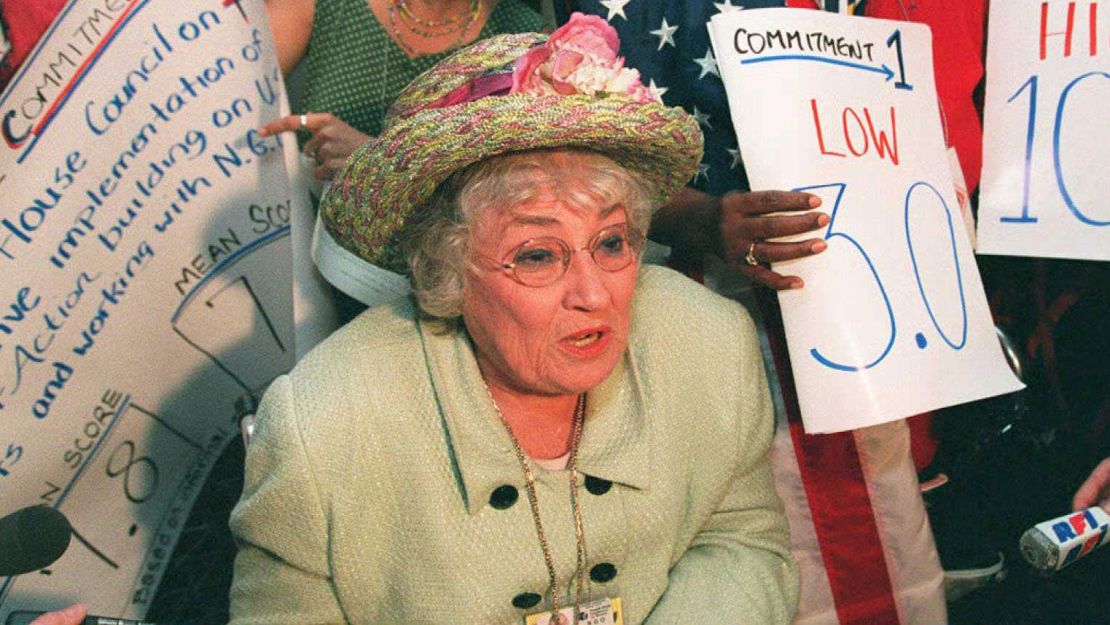
At the opening plenary, a colorful congresswoman from New York, Bella Abzug, proclaimed, “In the next century, women will change the nature of power, rather than power changing the nature of women.”
In this historic year of celebrating the 19th Amendment giving women the power of the vote, I’m still a believer in Bella’s prediction because I have witnessed what can happen when women bring forward the full scope of our experiences as mothers, daughters and sisters, individually and collectively, to redefine power by how we use it and share it. From negotiating peace to leading toward climate justice, we have, as a global women’s community, the opportunity to fully actualize Bella’s faith in us.
Pat Mitchell is a media executive, author and the editorial director of TEDWomen. She was the first female president of PBS.
Margaret Chase Smith – and many more
By Kay Bailey Hutchison
When I wrote “American Heroines: The Spirited Women Who Shaped Our Country” an observation jumped out: in many instances in the remarkable progress of women in history, the first barrier breakers worked for years to be recognized in their fields, but never saw their success.
Margaret Chase Smith was the first woman in the US Senate elected and reelected in her own right. She broke a barrier and likely would be surprised that almost 25% of the Senate’s members are now women.
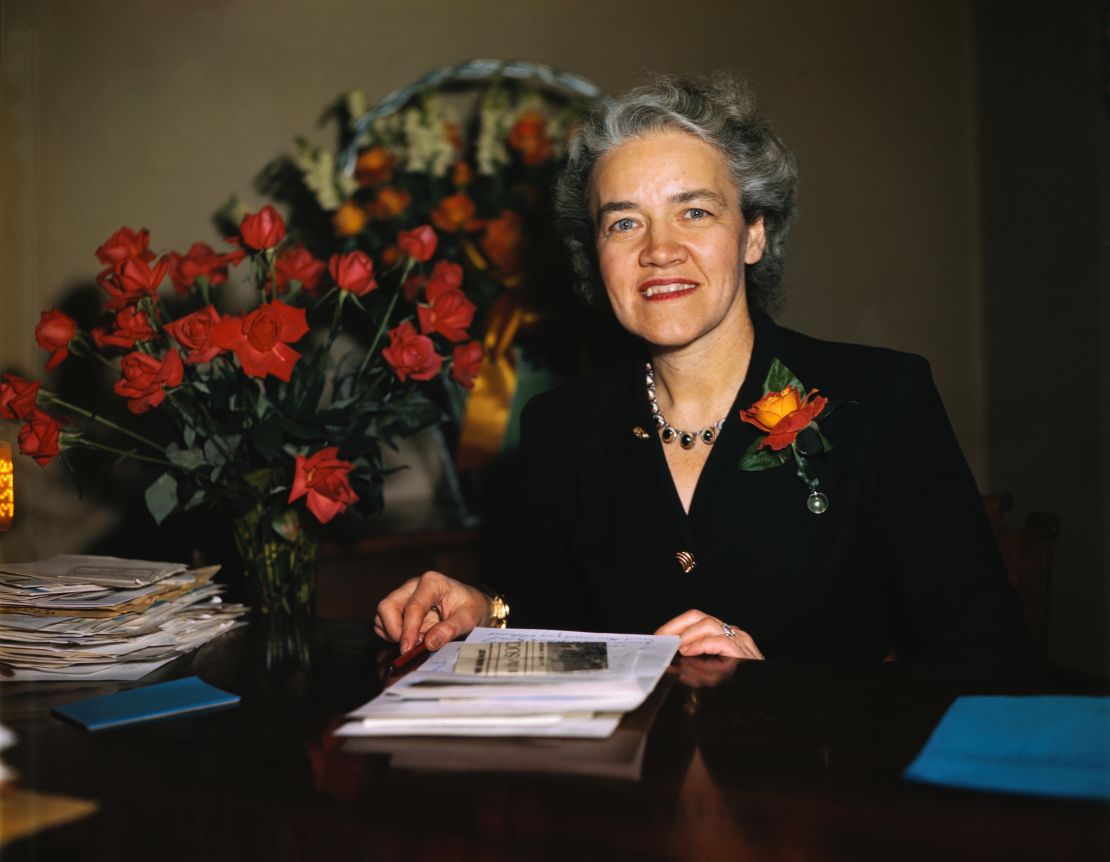
Amelia Earhart broke the barrier for women in aviation, then Jackie Cochran founded the WASP, a WWII Women Pilots Service, paving the way for Sally Ride, the first American woman in space.
Emma Willard fought for girls’ public education, lobbying and speaking on the importance of educating girls in the early 1800s. Her lead started the movement which eventually spread to every state.
And finally, suffragists rallied and marched for women’s equality starting in 1848, seeking the basic right to vote and assure their voices were counted. It took over 50 years before their dream was realized and none of the brave early leaders lived to celebrate or exercise this important right. It opened so many doors for the next steps to true equality.
Many of the women who faced obstacles just because they were women never even dreamed of the women today running America’s biggest corporations or leading their cities, states and judiciary as mayors, governors, senators, and Supreme Court justices, but they fought for equality and education. Their efforts opened the doors.
We stand on the shoulders of giant spirits who fought for women’s role in building our country, in every field that contributes to the greatness of America.
Kay Bailey Hutchison is a former Republican US senator from Texas. She is the US Permanent Representative to NATO.
Hillary Clinton
By Kirsten Gillibrand
More than 20 years ago in Beijing, Hillary Clinton stood in front of the United Nations World Conference on Women and declared that “human rights are women’s rights and women’s rights are human rights.” Although Hillary’s history-making speech was directed at the world, it felt like she was speaking directly to me. At the time, I was a young lawyer, but Hillary’s words forced me to ask myself tough questions about what I was doing to make the world a better place.
Hillary’s speech got me off the sidelines. I became involved in the Women’s Leadership Forum and worked at the US Department of Housing and Urban Development during the last year of the Clinton administration. In 2006, I ran for Congress in a two-to-one Republican district and won. Two years later, I won reelection, and then, coming full circle, I was appointed to Hillary’s Senate seat following her appointment as Secretary of State.
I can’t imagine that Hillary would have predicted that her speech in Beijing would lead to her successor in the US Senate, but I’m certain she knew that her words would inspire generations of women. Speaking for one of them, I’m grateful she did.
Kirsten Gillibrand is a Democratic US senator from New York, a former candidate for the Democratic nomination for president and the creator of Off the Sidelines, a movement to encourage more women and girls to run for office and participate in civic life.
My mother
By Alicia Garza
During times of uncertainty, it’s important to reach for inspiration as a way to stay connected to what’s possible. I’m grateful for my own mother, Lynette Schwartz, who taught me from a young age to always expect the unexpected and be prepared for the things that you cannot see. When I was growing up, I used to think that my mother was unnecessarily worried about everything and overly prepared. Her advice and habits have become especially helpful in the last few weeks as uncertainty spreads. Because of her, our home has become a sanctuary for those who don’t have the same.
When my mother died two years ago, I was flooded by stories from near and far of how she showed up for someone in their darkest and most uncertain moments. Moving into 2020, I realize that the guidance my mother gave me growing up was not only an important foundation for the woman I have become, but she has given me an important framework from which to approach this moment: Show kindness and love, every chance you get. Connect with someone who needs to hear a caring voice right now. Offer assistance while making sure your own oxygen mask is secured. A smile can travel a million miles—practice yours. Hug your loved ones tight. Recognize that the actions you take today will impact many other people, so choose your actions wisely. Fight like hell for your family and for others, because the only way we make it through times like these is together.
Alicia Garza is strategy and partnerships director for the National Domestic Workers Alliance and a co-founder of Black Lives Matter and Supermajority
The women of color who built our movement
By Aimee Allison
The women of color who founded the movement we carry forward today are my inspiration. Their persistence to be seen and heard gives me strength to carry on in uncertain times. The term “women of color” was born in 1977 in Houston, Texas, at the first and only National Women’s Conference. There, among more than 20,000 mostly white women, a cadre of Black, Latina, Asian American and Native women redefined the women’s agenda to include race, class and solidarity. They inspired entire generations of us to step fully into our collective leadership and power. Now women of color—a majority of women in several states—are leading progressive reforms as voters, organizers and courageous elected leaders.
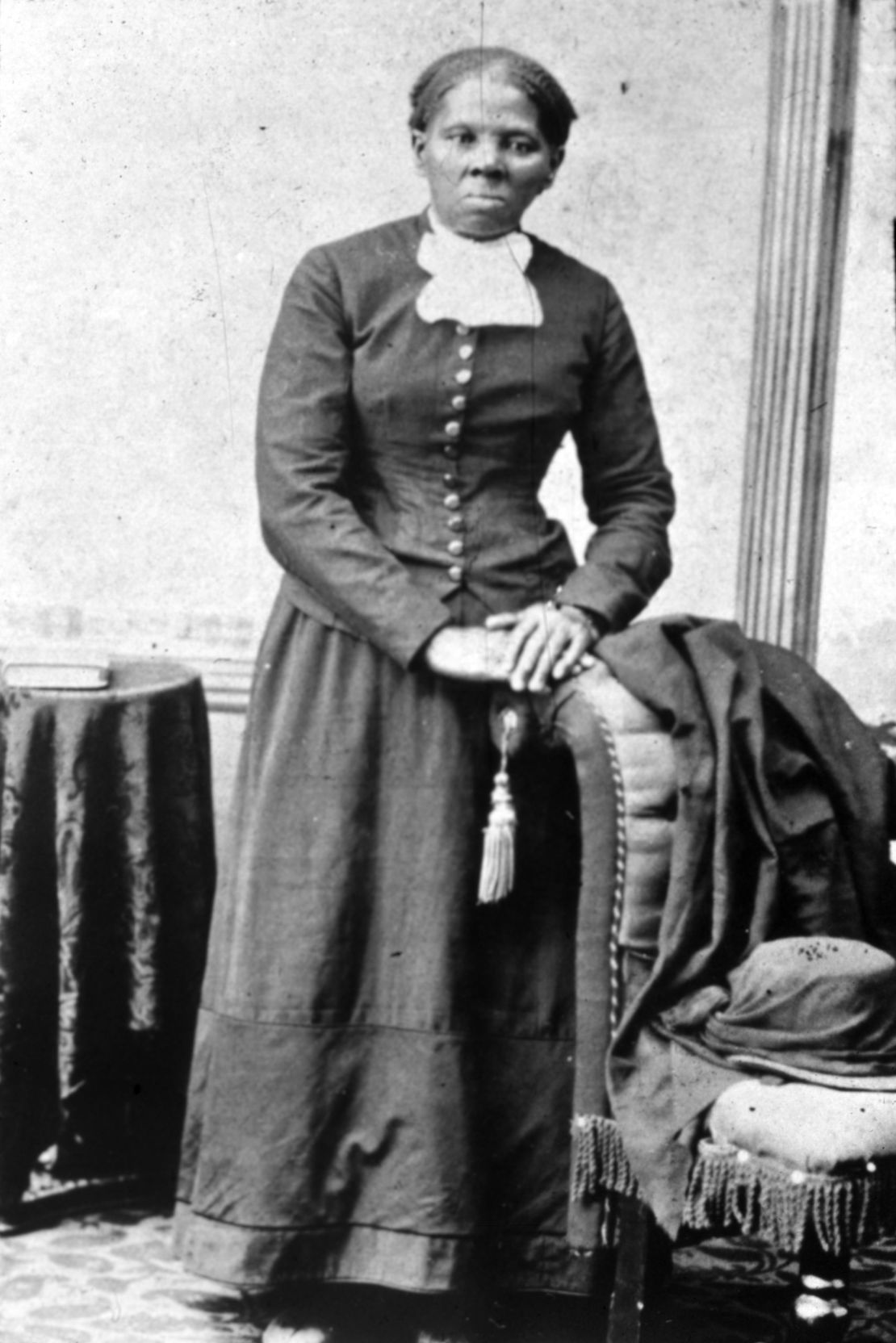
But the lineage of we women of color runs even deeper, back to Harriet Tubman, Sojourner Truth, Ida B. Wells and Ella Baker. She the People—the clarion call of democracy—resounds in the words of Grace Lee Boggs and Yuri Kochiyama, Zitkala-Sa, Queen Liliuokalni, Cherokee chief Wilma Mankiller and organizer Luisa Moreno. It is exemplified with my hero Shirley Chisholm who began her historic run for Congress 51 years ago.
These are our godmothers. We walk in their footsteps. They give me hope that keeping up the fight will, in the end, lead us to where we want to be: a democracy based on love, justice and belonging.
Aimee Allison is founder and president of She the People, a national network elevating the political power of women of color.
Geraldine Ferraro
By Cecile Richards
I can still remember standing with my mother, Ann Richards, on the floor of the 1984 Democratic National Convention in San Francisco. It was the first time we’d done anything like this together. As State Treasurer of Texas, Mom had been asked to give a speech seconding Walter Mondale’s nomination for the presidency, and she asked me to go along. Even though her speech was the next day, it was the furthest thing from our minds while we waited for Mondale’s running mate, Geraldine Ferraro, to take the stage. That night, she would become the first woman ever nominated as vice president on a major party ticket.
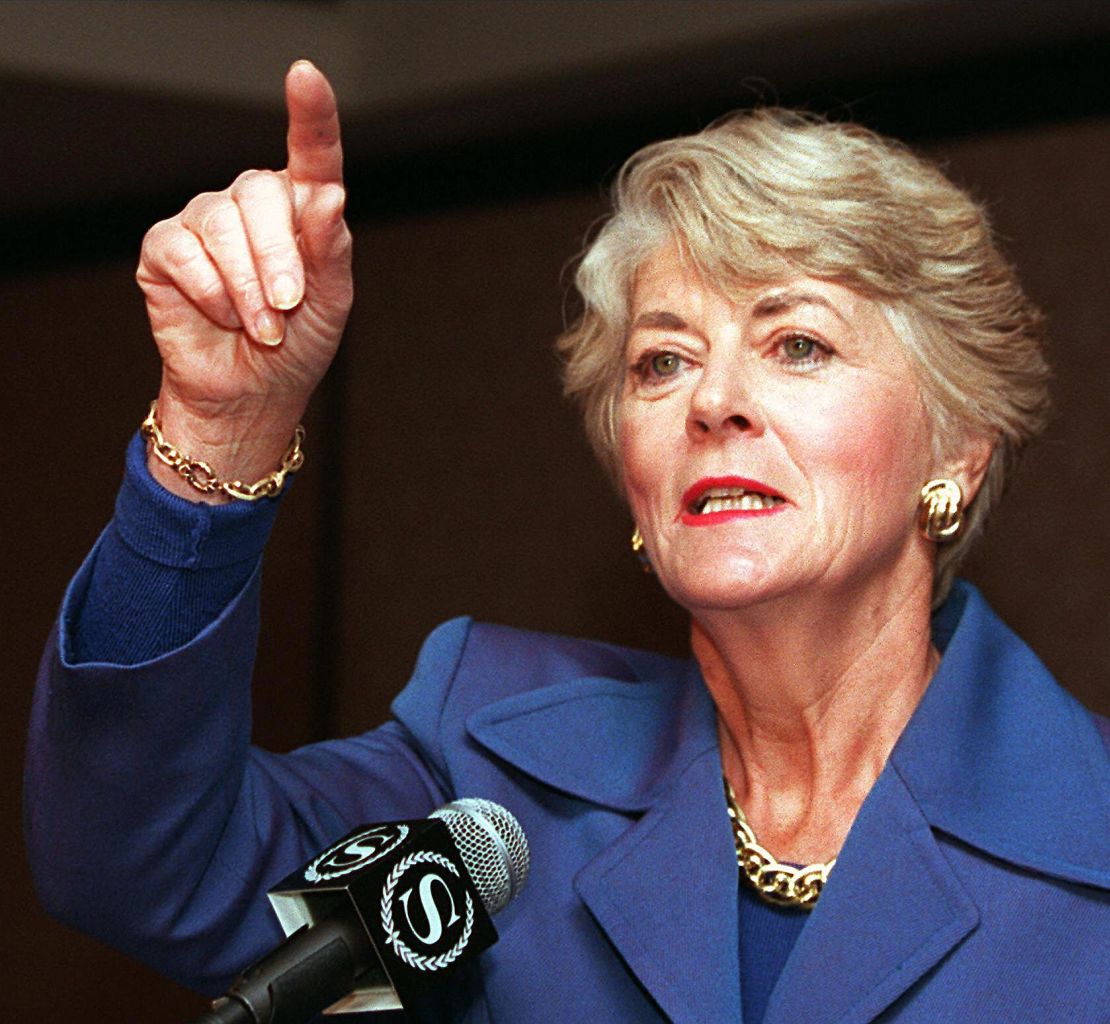
Usually only official delegates were allowed on the convention floor, but that night it was packed with women from all over the country. I wasn’t a delegate, but like many of the women around me, I had been given a floor pass by a male delegate. Susan Stamberg from NPR, dressed as she always was in sandals and a flowing dress, walked up to Mom with her ubiquitous microphone and headphones. She yelled over the screaming delegates: “How does this feel, Ann?” Mom was not a sentimental person, but even she was overcome, soaking in the moment as Geraldine Ferraro’s name was announced over the speakers. She answered, teary-eyed: “I wasn’t sure I would ever live to see this day. Finally, one of us.”
Later that night, Geraldine took the stage to raucous applause. She said: “By choosing an American woman to run for our nation’s second highest office, you send a powerful signal to all Americans. There are no doors we cannot unlock. We will place no limits on achievement. If we can do this, we can do anything.” In that moment, women caught a glimpse of how it would feel to have real representation at the highest levels of government for the first time. That moment is on my mind this year, as women are proving to be the most energized voters in the country. We may not shatter that “highest and hardest glass ceiling” this November. But 36 years after Geraldine Ferraro electrified the convention, we can absolutely elect the first woman Vice President of the United States.
Cecile Richards is former president of Planned Parenthood, an author and co-founder of Supermajority
Harriet Tubman and Angela Davis
By Patrisse Cullors
As a young girl impacted by over-policing and over-incarceration in my communities, I was particularly grateful when I learned about the abolitionist movement that helped support enslaved Africans to gain their freedom. I would learn and relearn the brilliant story of Harriet Tubman—a young enslaved woman who would free herself from slavery and eventually free so many others including her entire family. This kind of bravery helped me assess the life I was living and created a courage in me that translated into the work I currently do today.
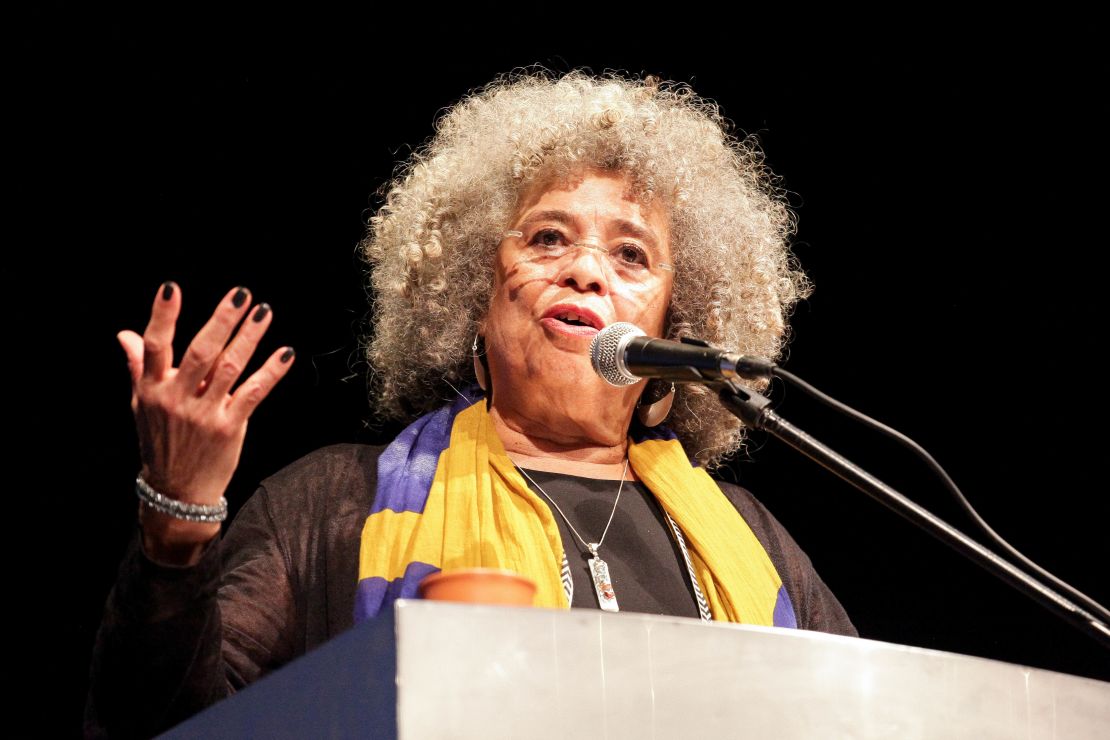
I would often ask myself, what is the new Underground Railroad? What is the new abolitionist movement? That answer has come through one of my mentors, Angela Davis. Angela made sure that as a country we understood that prisons and police are the new frontier in our movement towards ending slavery. Angela believes deeply—and Tubman did too—that black people must be able to determine our own destinies. Slavery and imprisonment are antithetical to freedom and that’s why I’ve dedicated my life towards an abolitionist movement that embodies a vision towards healing justice, transformative justice and community accountability.
Patrisse Cullors artist, activist, co-founder of Black Lives Matter and founder and chair of Reform LA Jails, a Los Angeles-based committee that represents a coalition of citizens, community leaders, and organizations to prevent crime, and permanently reduce the population of people cycling in and out of jail that are experiencing mental health, drug dependency, or chronic homelessness issues.
Myself – and Yourself
By Ileana Ros-Lehtinen
In my life, I have had many moments of self-doubt when I have felt that I lacked the knowledge, the background, the expertise necessary to deal with vexing issues. Most women have had such experiences.
One such moment happened to me when I decided to run for my first Congressional campaign in the summer of 1989. Long-term member of Congress and former US Senator Claude Pepper died and a rare vacancy opened up for his Miami Congressional seat. I was serving at the time as a Florida State Senator and many folks around my political circle were encouraging me to throw my hat in the ring. I resisted the rush to listen to those supportive voices. Why? Because I felt that I needed more time to become well-versed in international issues.
Even though I was born in Cuba, became a naturalized US citizen, and was immersed in matters related to world affairs through our community’s involvement in the fight for freedom and democracy in our hemisphere, I still felt that others knew more than I did.
I wanted more time to decide if I was truly ready to run or not. But there was no time to ponder this. The decision had to be made quickly.
After encouragement from my husband and my father, I decided, hesitantly, that I would run for Congress. No crash course in national or international issues. It was sink or swim. And what did I find out in that campaign season? That I already knew plenty about these big issues; that I was more than prepared to debate my political opponents; and that most of the male candidates had only superficial knowledge of these important issues yet they were undeterred. Their confidence knew no limits.
So the lesson garnered from my first Congressional campaign was to believe in yourself and don’t think that you lack the preparation for the job you are seeking. Get prepared but never doubt yourself. And then, you will blow those guys, who seem so polished and ready, out of the water!
Ileana Ros-Lehtinen is a former Republican US representative from Florida and the first Latina elected to Congress.
Ida B. Wells-Barnett
By Kimberlé Crenshaw
Born into slavery and orphaned as a young woman, Ida B. Wells-Barnett was an uncompromising and courageous voice for race and gender justice. She resisted not just the terror of racism and the suffocation of sexism, but also the conventions that artificially limited advocacy against these “isms.”
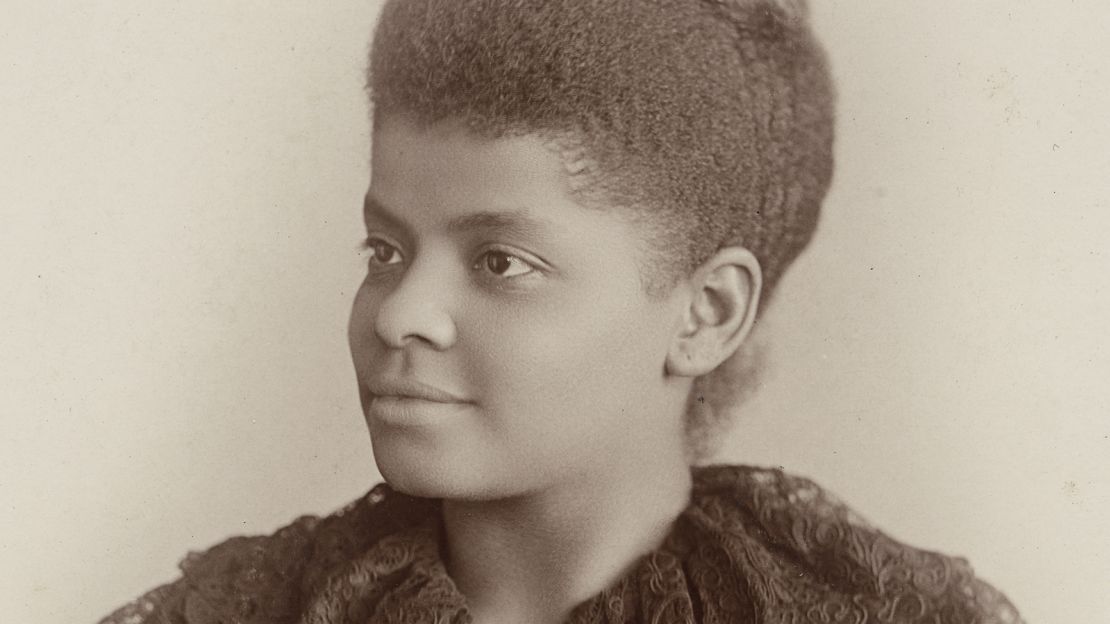
Wells-Barnett’s inspiring story is one of resilience and bravery, not constant success. When she dared to sue after being rejected from “the ladies car,” her victory was overturned on appeal. When she wrote a scathing account of the lynching of three successful Black businessmen, white mobs destroyed her printing press. When she launched an anti-lynching campaign that ultimately seeded the NAACP’s signature efforts, she was excluded from the leadership of the organization. And when she sought to march alongside white woman suffragists, she had to single-handedly combat the efforts of her white sisters to force her to march in the back.
It may be odd to find inspiration in the travails of someone who frequently lost, even within her allies. But Wells-Barnett’s legacy can be seen in the sit-in demonstrations of the 1960s, the contemporary emerging political power of Black women, and the struggles against anti-Black violence that is the foundation of #BlackLivesMatter and #SayHerName. In fighting for her present she nurtured a realizable future. She is an ever-present reminder that losing in the short run is not the worst outcome. But the refusal to fight is.
Kimberlé Crenshaw is co-founder and executive director of the African American Policy Forum and a professor of law at UCLA and Columbia Law School.
Mariame Kaba
By Opal Tometi
One of the people who has inspired me is Mariame Kaba, one of the nation’s leading prison abolitionists and the founder of the organization Project NIA, which works to end youth incarceration. She’s truly remarkable. One of the attributes I most admire about her is the resilience she embodies and the genuine sense of hope she exudes. She is deeply principled and warm hearted in her pursuit of justice. She said something years ago that has stayed with me: “Hope is a discipline.” When things feel bleak, I come back to these words to maintain perspective and to persevere.
She is one that I look to during this Women’s History Month. However, there are also several women around the globe that I admire. In fact, this month I used my personal Instagram page to launch something I’m calling #GlobalHerstory profiles. I’ve been highlighting black women change makers around the globe—modern icons I admire because of their phenomenal work in their communities. The women I’ve included range from Graca Machel Mandela—the wife of the late Nelson Mandela—to Erica Malunguinho da Silva, who is the first transgender Congresswoman in Brazil. There are so many sheroes who are worthy of recognition and celebration. I learn from them in some way daily and hope to help amplify their contribution and keep the legacy of transnational feminism going in my own little way with this project and my daily work.
Opal Tometi is co-founder of Black Lives Matter and former executive director of the Black Alliance for Just Immigration
Gunnawa
By Robin Morgan
It was over 30 years ago that I went to the mountainous Northern Cordillera region of the Philippines, at the invitation of the Filipina Women’s Movement, to work with women. Of the memorable moments from that trip there’s one encounter I always return to when I feel lost.
We went out into one of the tiny rice-paddy villages, a cluster of six tin open-sided lean-to huts. It’s a day’s trek, by minibus from the little town of Bontoc, then by foot up and down steep hillsides and across fragile rope bridges, then teetering along thin strips of earth that divide the paddies. Finally we sit on the mud floor of one of the huts, drinking peanut coffee from a shared tin cup. Urban Filipinas speak English, some Spanish and only a little Filipino (Tagalog); the tribal people of the North have their own languages. One woman translates.
Gunnawa, the woman in whose hut we sat, was the mother of seven children who crowd around us as we speak. She was in her thirties, but looked like a woman in her sixties. Her teeth were rotting; her skin, tanned to leather by the sun, stretched across a gaunt frame. But her eyes gleamed with intelligence. She was proud that her children were learning to read: a woman came once a week from the tiny Bontoc Women’s Centre to teach them.
Gunnawa had never been out of this village. The longing in her soft voice was clear even before the translation reaches me through another woman’s voice. What did she want, more than anything? “To learn to read,” came the quiet reply. I asked again, gently: Not more food, better shelter, some ease from her intense lifelong labor? “No,” she insisted with dignity, “to read. Because, you see,” she continued, “someday I might go somewhere. I hear there are signs on the roads. If I could read the signs, I would know where I was. Then I could know where I was going.”
Later that afternoon, each of us clutching at the ropes of a swaying bridge, my activist translator shouted to me that somehow, she must find the funding to start an adult literacy program for the women of this rice paddy. And so we all did. But Gunnawa is always with me. Because all of us need to know how to read the signs that tell us where we are. So we can know where we’re going.
Robin Morgan is an author, co-founder of the Women’s Media Center and host of WMC Live with Robin Morgan.
Note: This article has been updated with the “Dorothy Parker” entry.















